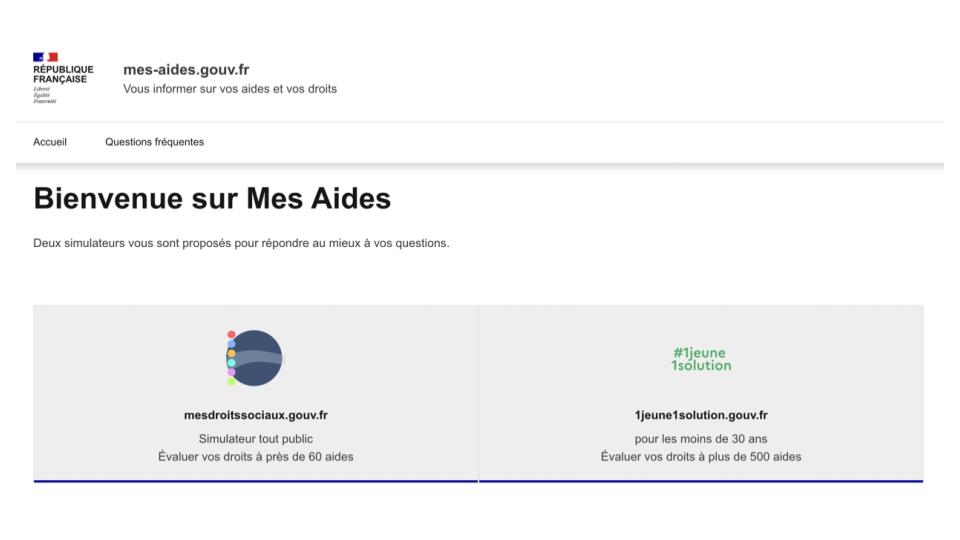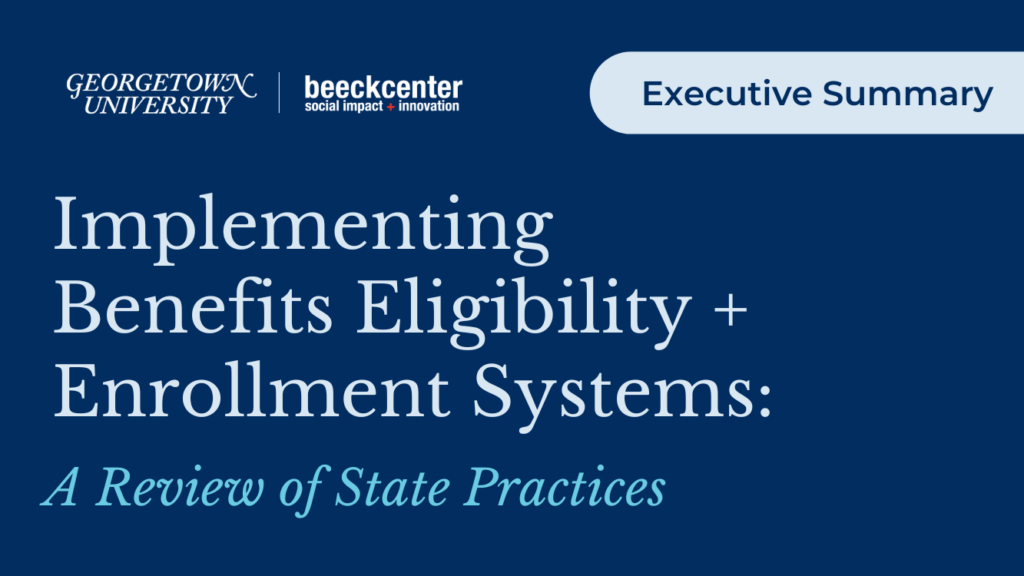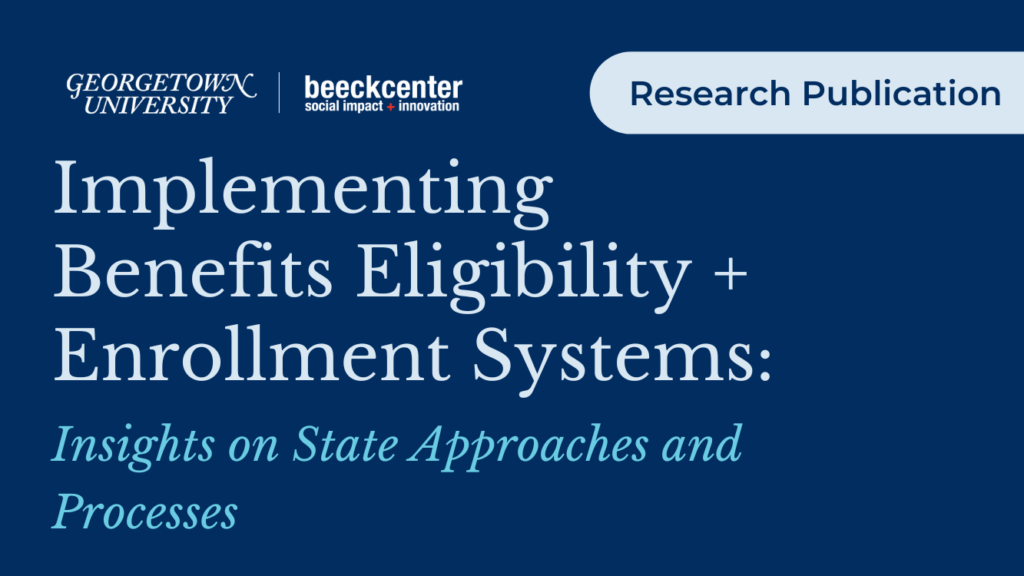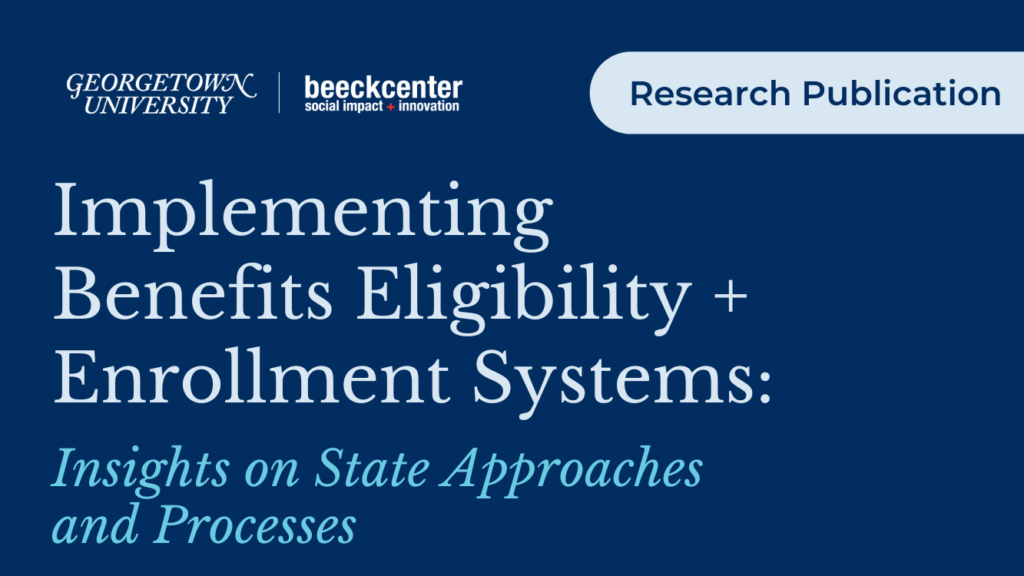Project Snapshot: Mes Aides
beta.gouv.fr, a French government incubator, developed Mes Aides, an online benefits simulator launched in 2014 to help residents assess their eligibility for various social programs, addressing the issue of unclaimed benefits. The tool, built with open-source technology, enabled users to quickly estimate their potential benefits but was later integrated into a broader platform in 2020 following internal government disputes over authority.
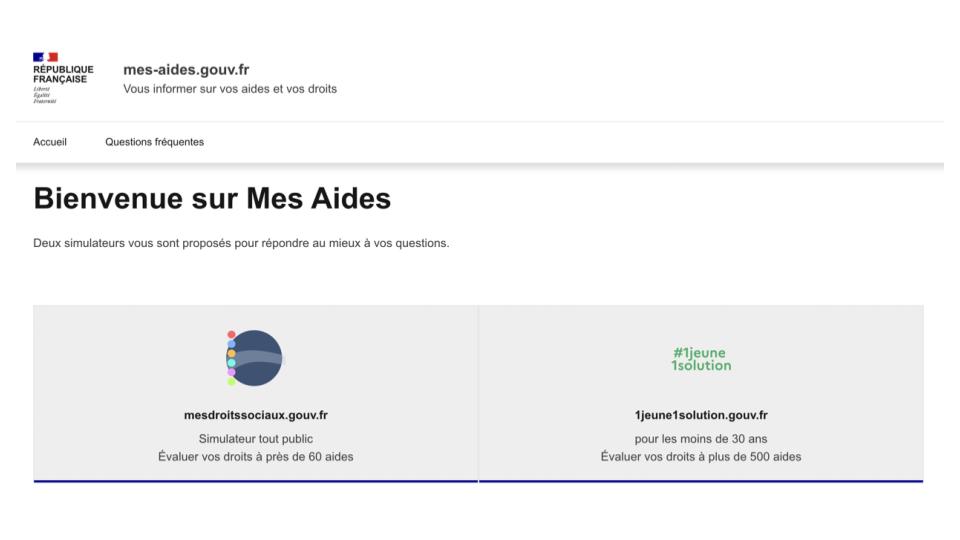
Organization Description + Mission
beta.gouv.fr is a French government incubation program. The incubator was established to help public agencies build digital services that are simple, easy to use, and meet user’s needs.
Approach to Eligibility
In 2014 a team at beta.gouv.fr started development on Mes Aides, an online benefits simulator to help residents assess their eligibility for various French government benefits programs. The project was partly designed to address the problem of benefits “non-use”, when individuals do not receive benefits for which they are eligible because of a lack of knowledge or demand. The Mes Aides site (mes-aides-gouv.fr) allowed users to evaluate their eligibility for 28 benefits programs in less than 7 minutes. The simulator also showed users their estimated benefits amounts for various programs.
The Mes Aides site was developed and launched by a small team, with on average two full-time staff. Between 2014 and 2019, the project received an investment of 1,230,000 euros and between 2017 and 2019, 4,628,583 visitors completed the benefits simulation and accessed their results.
By working with agencies that administer benefits, the Mes Aides’ team was able to get additional information about eligibility rules, help institutions simplify their benefit application processes, and incorporate contact and support information for different programs into the simulator. Developing contacts with these stakeholders was also important for understanding benefits rules and improving the simulator’s reliability. However, establishing support among existing institutions was not always easy.
In 2020, the original Mes Aides simulator was absorbed into mesdroitssociaux.gouv.fr, another benefits simulator that the French government launched in 2017. This integration followed a contentious arbitration process, which determined that the Ministry of Solidarity and Health was solely responsible for calculating social rights, or benefits. At stake in the dispute were questions about which government agencies had the authority to calculate benefits estimates.
Today, individuals looking for information about public benefits in France are directed to mesdroitssociaux.gouv.fr to evaluate their eligibility for almost 60 different benefits. Individuals under 30 can also assess their eligibility for more than 500 benefits on 1jeune1solution.gouv.fr, which uses approximately the same code base as the original Mes Aides site. In contrast to the Mes Aides simulator, the source code for the MesDroitsSociaux site is not public and was developed with a private contractor. The site also requires users to login before they can access any benefits simulations, unlike the Mes Aides simulator, which users could complete without any sign-in process.
The intragovernmental tensions which led to the termination of the Mes Aides government site exemplify some of the challenges agencies may face when building new technology and tools: cultivating support and buy-in among existing institutions, clarifying how a new piece of technology fits into agencies’ areas of responsibility, and establishing policies to guarantee a tool’s longevity. However, as Mes Aides’ data shows, the tool was well-received and accessed by many users. The original Mes Aides simulator is still accessible on mes-aides.org.
Rules Structure + Technology
The Mes Aides benefits simulator was built using the open-source vue.js framework and node.js runtime environment. The back-end of the simulator, the tax and benefit system modeler, was built on OpenFisca, which itself is built on python and numpy.
One of the challenges when creating a benefits simulator like Mes Aides, was grouping people into appropriate categories to assess program eligibility. For example, in some cases, a person is eligible for a benefits program as an individual. In other cases, their eligibility is determined by their grouping into a household, family, or fiscal unit. OpenFisca allows variable computations on individuals and the groups they form (household, family, fiscal unit, etc.), and can associate variables (like age or rent) with those different entities.
How They Write Rules
Originally, the Mes Aides simulator relied on benefit rules set by the French government and did not have to take into account state-level variations in benefit rules and implementation, like those that exist in the United States (federalism). When the project first started, the Mes Aides team was responsible for writing the benefits rules as code at a national level. Now, there is a government institution that is primarily in charge of coding primary social benefits rules at a national level. Local benefits were added incrementally, and French jurisdictions were able to develop local applications or access custom-made extensions to Mes Aides.
The rules used in Mes Aides’ simulator are stored in France’s OpenFisca repository. OpenFisca is a free, open source platform used to write rules as code that was developed by the French Government in 2011. Developers can work with policy experts to translate rules into code on the Open Fisca platform, or build applications that call coded rules in Open Fisca through a web API. They can also update these rules as policies and regulations change. Open Fisca was initially built to create tools for predictive policy analysis such as LexImpact, a tool that allows members of France’s parliament to simulate possible changes in tax law to better understand potential impacts on residents. (For more on OpenFisca for rules as code, see Cracking the Code: Rulemaking for humans and machines.)
Mes Aides’ work demonstrates how the Open Fisca platform can be used to build out user-friendly, front-end systems that help individuals quickly get an eligibility screening. The Open Fisca framework and open source code has also inspired groups in other countries to utilize the framework for new tools including PolicyEngine, which seeks to help people understand and change policy by simulating their tax liability and benefit eligibility in the United Kingdom and United States (link to PolicyEngine case study). OpenFisca country packages are currently available for: Côte d’Ivoire, Italy, Mali, New Zealand, Senegal, Tunisia, and Uruguay, as well as France, in addition to some city-specific packages.
Although the Mes Aides government site has been discontinued, the project demonstrates the potential demand for an openly accessible benefits simulator. This project also underscores the importance of securing institutional backing among a range of stakeholders to create a tool that is sustainable and well-supported.
